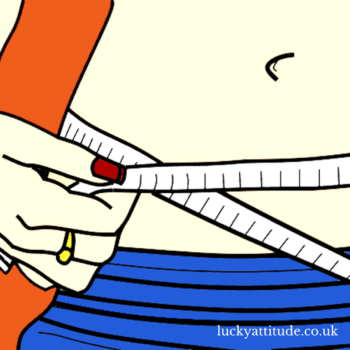Dietary Supplements For Weight Loss: Do They Work?

The effectiveness of dietary supplements for weight loss can vary significantly depending on various factors, including the specific supplement, individual physiology, lifestyle, and overall health habits.
With so many different products claiming to help you shed those extra pounds, it can be overwhelming trying to figure out which ones actually work.
From fat burners and appetite suppressants to metabolism boosters and carb blockers, the options are endless. But do these supplements really live up to their promises?
While some dietary supplements may claim to aid in weight loss, their efficacy and safety can be uncertain.
The effectiveness of dietary supplements for weight loss can vary significantly depending on various factors, including the specific supplement, individual physiology, lifestyle, and overall health habits. While some dietary supplements may claim to aid in weight loss, their efficacy and safety can be uncertain.
Here are a few popular dietary supplements for weight loss and their potential effectiveness:
What are weight loss supplements and how do they work
Dietary supplements for weight loss are natural or synthetic products that claim to aid in losing weight by potentially altering metabolism, reducing appetite, increasing fat burning, or impacting the absorption of nutrients.
These supplements can come in different forms, such as pills, capsules, powders, or liquids, and contain a variety of ingredients including vitamins, minerals, herbs, and other compounds.
They often contain a blend of ingredients, including vitamins, minerals, herbs, botanicals, amino acids, or other substances.
For instance, peptides are becoming popular as metabolism boosters. According to peptides.org, peptides are short chains of amino acids, which are the building blocks of proteins. When amino acids link together, they form peptides.
Peptides can vary in size, typically consisting of anywhere from two to fifty amino acids. Larger chains of amino acids that exceed around 50 are generally referred to as proteins.
However, the efficacy of these supplements can vary greatly and should be approached with caution.
Types of dietary supplements for weight loss
There are a wide variety of dietary supplements for weight loss on the market, each with unique ingredients and claims. Some of the most common types include:
1. Fat burners
Fat burners are supplements that claim to increase metabolism and help the body burn fat more efficiently. They typically contain stimulants like caffeine, green tea extract, or capsaicin that may temporarily boost energy levels and suppress appetite. However, there is limited evidence to support their long-term effectiveness in aiding weight loss.
Conjugated Linoleic Acid (CLA) – is a dairy and meat product, marked as a fat burner. Research results are mixed, and its impact on weight loss might be minor.
2. Appetite suppressants
As the name suggests, appetite suppressants are supplements that claim to reduce feelings of hunger and decrease food intake. Some common ingredients include glucomannan, Phentermine, Hoodia gordonii, and Garcinia cambogia. However, their effectiveness is limited and they may have side effects such as nausea, headaches, and constipation.
Phentermine is an injectable substance offered at IV therapy clinics around the world. Check out Invigorate Clinic if you’re based in the USA, their medical weight loss program looks especially interesting.
Some protein supplements can help to increase feelings of fullness and aid in preserving lean muscle mass during weight loss, but they’re not a direct solution for shedding pounds.
Equally, fiber supplements may promote feelings of fullness and aid in controlling appetite, but they’re not likely to lead to substantial weight loss on their own.
3. Metabolism boosters
These supplements claim to increase your body’s metabolism, allowing you to burn more calories throughout the day. Common ingredients include caffeine, green tea extract, and B vitamins. However, there is limited research on their effectiveness and they may have side effects such as increased heart rate and blood pressure.
4. Carb blockers
Carb blockers are supplements that claim to prevent your body from absorbing carbohydrates, thus reducing overall calorie intake. They typically contain ingredients such as white kidney bean extract, which inhibits the enzyme responsible for breaking down carbs. However, their effectiveness is limited and they may cause digestive issues.
Do weight loss supplements really work?
The best way to lose weight is through diet.
Supplements are not magic pills for weight loss and should not replace a balanced diet and regular exercise.
Moreover, the dietary supplement industry is not well-regulated in some countries, and products might contain contaminants or inaccurate labeling about their ingredients and effectiveness.
Before taking any weight loss supplement, it’s crucial to consult with a healthcare professional. Some supplements might interact with medications or have adverse effects, especially for individuals with certain health conditions.
How to pick the right weight loss supplements for yourself
* Speak to a healthcare professional, like GP, nurse, or pharmacist
* Do your research – look for products that have been tested by reputable organisations
* Be wary of supplements with exaggerated claims or hidden ingredients.
* Pay attention to the dosage recommended and any potential side effects.
Dietary supplements for weight loss may provide temporary results, but the long-term effectiveness and safety of these products are still being studied.
Always approach them with caution and prioritise making healthy lifestyle changes for sustainable weight loss.
Your body is unique and what works for someone else may not work for you.
Stay informed, consult with your healthcare provider, and make choices that align with your health and wellness goals.

